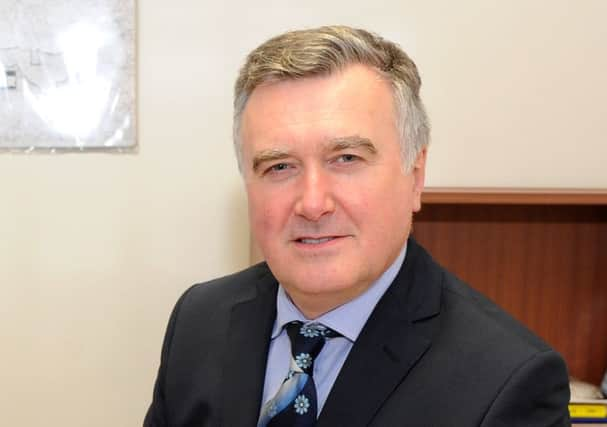MP reflects on visit to the West Bank


Former journalist John Nicolson was one of 56 SNP candidates who won a seat in the General Election back in May this year. Mr Nicolson, now the MP for East Dunbartonshire, was part of a delegation that recenlty visited the West Bank. On his return he wrote this article for the Kirkintilloch Herald series.
MPs get a lot of mail - hundreds a day during the first few weeks after an election.
Advertisement
Hide AdAdvertisement
Hide AdAnd with some of the e mails there are invitations, many asking newly elected members to go abroad for vitally important fact-finding missions to Bordeaux wine yards or Italian olive regions.
Tempting though these are, I have said no to every invitation apart from one, from Medical Aid for Palestinians.
And so it was, that I found myself during the recent parliamentary recess, standing in an arid field on the West Bank with a cross party Westminster group, a herd of sheep, and a Bedouin farmer who was desperate to stay on his land, and continue his age old way of life.
Growing up in Scotland, Bible stories featuring meek lambs and obedient sheep were always a mystery to me. Scottish sheep, as everyone knows, run for the hills at the sight of a shepherd. But Palestinian ones are a very different breed and they clustered round as we heard some difficult facts. I want to share them with you.
Advertisement
Hide AdAdvertisement
Hide AdMore than ten per cent of Palestinian Bedouins have been moved from their land by the Israeli Government, often under the flimsiest pretext, making way for Israeli settlers - frequently hardline, right wing political ideologues who have little sympathy for the international community’s declared aim of finding a two state solution.
Palestinians living in Gaza now spend ten per cent of their meagre wages on bottled water - and the battle over water in the West Bank has become a key factor in the moribund peace process.
Israel is expanding its illegal home building programme at an unprecedented rate. East Jerusalem - the intended capital of a future Palestinian state - is becoming encircled.
The Israeli separation wall has been built mostly on Palestinian territory - a further land grab. And in Hebron, one of the saddest sights we saw was the ancient town centre lying like a ghost town, its Palestinian citizens banned from entering, with soldiers protecting a small number of armed settlers.
Advertisement
Hide AdAdvertisement
Hide AdSome Israelis call settlement expansion “building facts on the ground”. But as Palestinians and liberal Israelis alike said to us, each new home makes peace harder.
The Israeli Government claims it’s still committed to a Palestinian state living in peace side by side the state of Israel.
However, it’s increasingly difficult to see how a Palestinian state could be viable.I’ve been to Israel and Palestine several times as a journalist, and have never known there to be more pessimism amongst ordinary voters on both sides.
But as we flew out, we all talked about one day and one village which seemed to represent both despair and hope.
Advertisement
Hide AdAdvertisement
Hide AdIn July settlers threw petrol bombs through the windows of eighteen month old Ali Saad Dawabsheh parents’ home in the village of Duma trapping the family inside. All three died in the most unimaginably cruel circumstances.
We visited the house and met the child’s grandfather. “I cannot understand what would motivate such barbarism” he said. “but please tell the outside world we have no hate, and want no revenge. We want only that this terrible act brings about peace.”